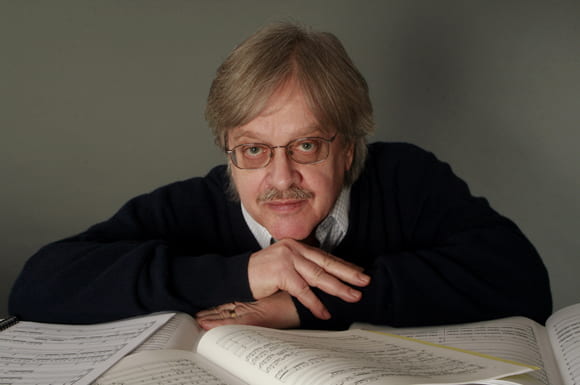Please join us for the visit of Fred Lerdahl to our composition seminar, on Tuesday (March 16th) at 4PM (Central Time).
Fred Lerdahl, one of the most important composers and scholars of music of our time will be presenting on his music and his work on music cognition and how it relates to his compositional practice. The session will be open to public and will be receiving questions in Vimeo live streaming platform as well as in Zoom.
https://vimeo.com/event/307776
Fred Lerdahl’s music is admired for its original harmonic syntax and formal processes, striking ideas, elegant craftsmanship, and expressive depth. His work seeks and achieves both complexity and intelligibility. It is indebted to the past yet committed to exploration of new territory.
Lerdahl’s music has been commissioned and performed by major chamber ensembles and orchestras in the United States and around the world, and he has been resident composer at leading institutions and festivals. His music is published by Schott Music Corporation and has been widely recorded for various labels, notably Bridge Records, which is producing an ongoing series devoted to his music.
His seminal book A Generative Theory of Tonal Music, co-authored with linguist Ray Jackendoff, is a founding document for the growing field of the cognitive science of music. His subsequent book, Tonal Pitch Space, which extends ideas developed in the earlier book, won the 2003 distinguished book award from the Society for Music Theory and an ASCAP-Deems Taylor award. A third book, Composition and Cognition, based on his 2011 Bloch Lectures at UC/Berkeley, brings together his dual activity as composer and theorist.
Lerdahl studied at Lawrence, Princeton, and Tanglewood. He taught at UC/Berkeley, Harvard, Michigan, and finally Columbia, where he was Fritz Reiner Professor of Musical Composition and head of the composition program for 20 years.
Lerdahl is a member of the American Academy of Arts and Letters. Three of his works composed since 2000–Time after Time for chamber ensemble, the Third String Quartet, and Arches for cello and chamber orchestra–have been finalists for the Pulitzer Prize in music.
